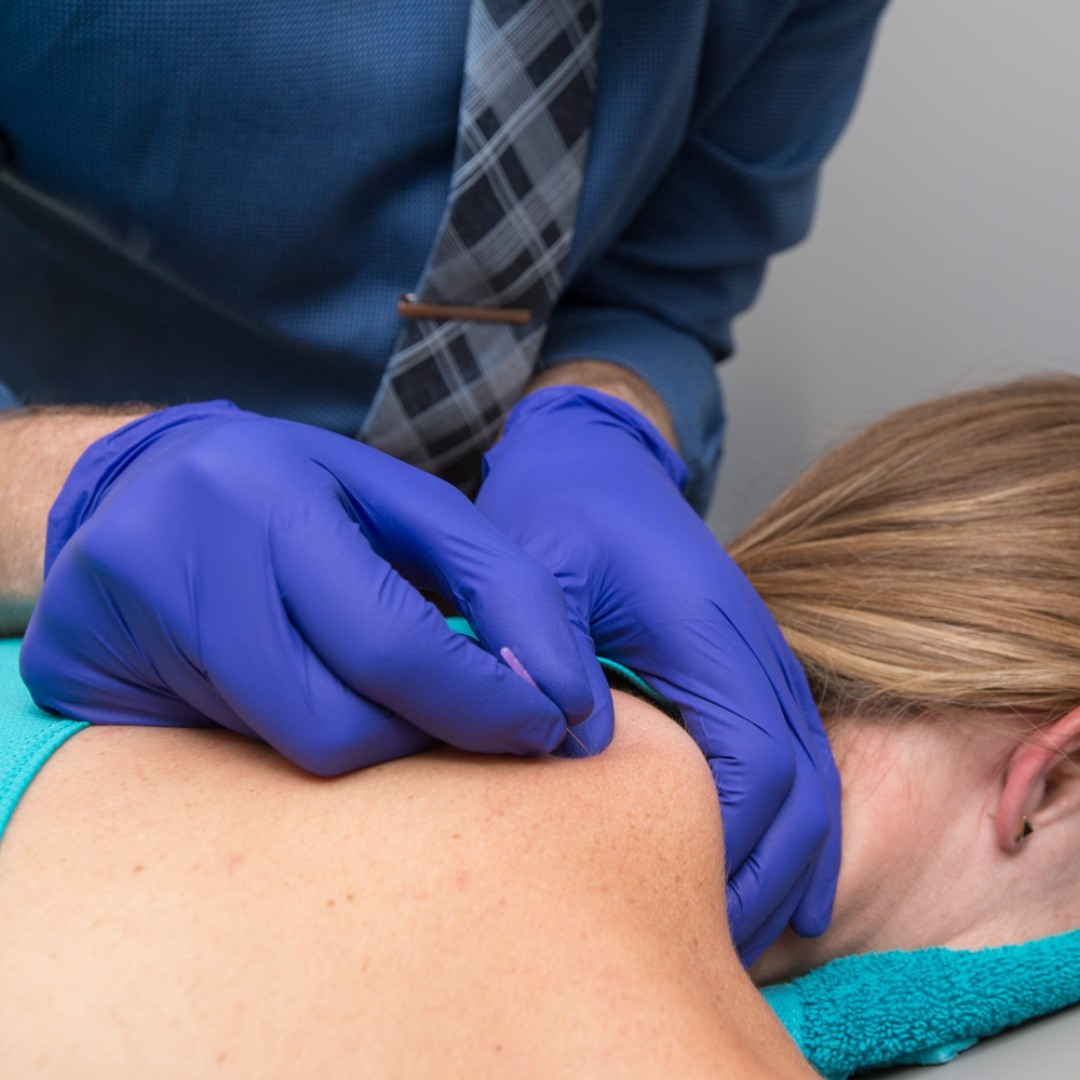Dry needling is a common treatment intervention utilized in our Boulder Physical Therapy and Lafayette Physical Therapy offices. Evidence supports its utilization of dry needling treatment of myofascial pain (muscular) which can be the sole or contributing source of a patient’s current symptoms. A common, mild side effect of the treatment is post needling soreness which quickly fades in the next 24 hours after treatment. In my experience, some muscles in the body such as the calf and upper trapezius are more prone to this effect in patients with lower extremity or neck symptoms. A recent study investigated how a Physical Therapist’s education during dry needling treatments may impact muscle soreness.
Nejad and colleagues conducted their randomized controlled trial on different patient education strategies during dry needling treatment of neck pain (Myofascial Pain Treatment. 2020). Researchers randomized 75 patients with neck pain to one of three groups
Positive Group – received positive verbal input including soreness indicates the treatment was effective
Negative Group – received negative verbal input including you may have a significant amount of pain
Control – no verbal input
Authors collected information on pain scores, functional outcomes, and the amount of pressure each participant could tolerate before pain was experienced. They reported all groups demonstrated improvements in pain, pressure tolerance, and neck function after treatment. These outcomes were not different between the positive or negative verbal input and control groups. Authors reported “post needling soreness does not seem to be a limiting factor in achieving acceptable outcomes” with dry needling treatments. As expected, patients were more concerned with the resolution of their neck pain and restoration of function after dry needling than the short term muscle soreness experienced after treatment.
Click Here to schedule your next appointment with the experts at MEND

